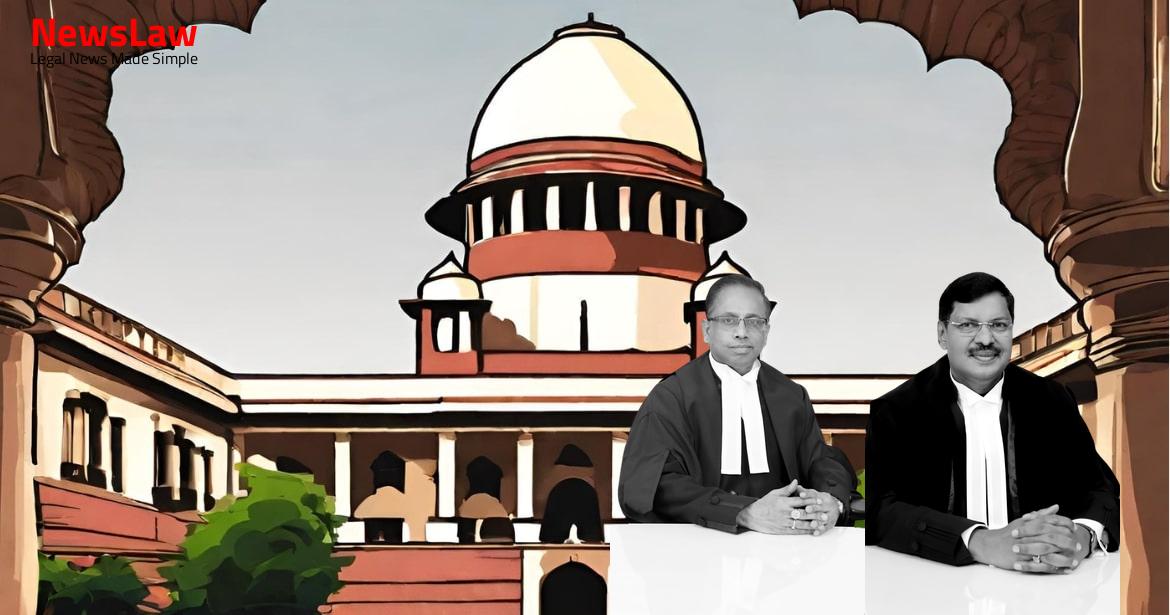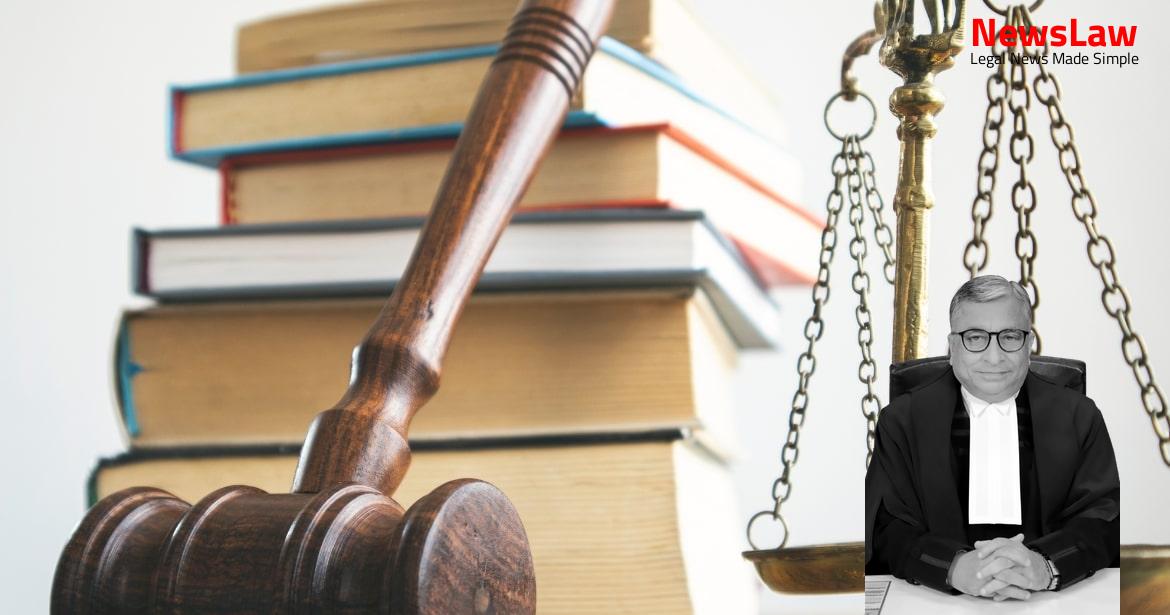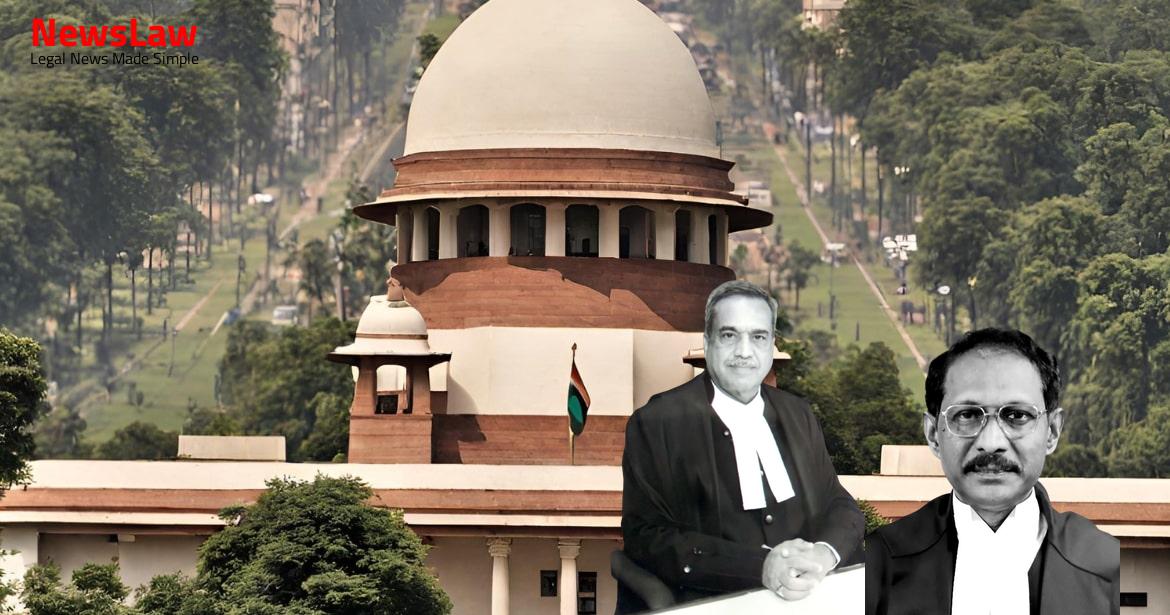In a significant ruling, the Supreme Court of India has addressed the issue of age relaxation and bonus marks in educational projects. The judgment delves into the validity of Rule 13(v) and the guidelines for awarding bonus marks, impacting applicants in the education sector. Explore the implications of this ruling on recruitment processes and the recognition of project experience. Stay updated on the latest legal debates in the realm of education projects.
Facts
- The Shiksha Karmi Project was a unique initiative launched in the State of Rajasthan in 1987 with assistance from the Swedish International Development Cooperation Agency (SIDA).
- The project aimed to reach children in remote rural areas where formal primary schools were lacking or dysfunctional.
- Shiksha Karmis were engaged to combat issues like teacher absenteeism, poor enrolment, high dropout rates, and limited access to education, and were paid a fixed honorarium.
- The projects were introduced to accelerate the universalization of elementary education in these areas.
- After the 83rd Constitutional Amendment and the establishment of an elected Panchayat structure, the project collaborated with elected Panchayat members to achieve its goals.
- Selection process for a particular position will be entirely through interview, with a total of 100 marks allotted.
- The interview marks are classified into General Knowledge (maximum 40 marks), Personality (maximum 35 marks), and Experience (maximum 25 marks).
- Additional bonus marks, up to 10, can be awarded based on teaching/supervision experience.
- Disqualifications include having more than two children after 01.06.2002, having more than one spouse, and obtaining dowry during weddings.
- Special reservations of 30% for women, with 5% reserved for widows, are part of the requirements.
- Age limits and relaxations are also specified in the guidelines.
Also Read: Land Acquisition and Compensation Dispute in Maharashtra
Issue
- The issue at hand is whether Rule 13(v) of the Rules, which provides age relaxation to persons serving under educational projects, is discriminatory and goes against Article 14 of the Constitution of India.
- Additionally, the question arises regarding the award of bonus marks to project employed applicants and whether this practice is discriminatory and beyond the scope of the Rules.
- The guidelines from 27.05.2008 regarding the award of bonus marks on a differing basis for project experienced applicants and others are also being examined for potential invalidity.
- The primary concern is the potential discrimination and legality of the age relaxation and bonus marks provisions under the Rules.
Arguments
- The appellants contended that Rule 13 (v) providing age relaxation only to a few categories of teachers in government projects is discriminatory and violates Article 14 of the Constitution.
- They argued that granting additional marks to para teachers with government project experience is ultra vires the Rules, as bonus marks were not mentioned in the initial advertisement.
- The appellants claimed that changing the rules mid-process was unfair, and offering the post to private and other teachers contradicted the intention behind the position.
- They further stated that awarding extra bonus marks for project experience could indirectly absorb all project appointees, which goes against the Rules.
- The appellants relied on a previous judgment to argue for strict adherence to the selection process as stipulated.
- The State justified the Rules by emphasizing the historical background, the increase in literacy rates due to educational projects, and the valuable experience gained by project workers in rural areas.
- They explained that ‘Prabodhak’ was created to mitigate teacher absenteeism in rural areas and address school dropouts.
- The State defended the age relaxation granted to project-employed applicants as necessary due to their meaningful experience.
- They also mentioned that guidelines for awarding marks for experience are a legal part of the selection process.
Also Read: NIACL vs. Flat Products: Legal Battle Over Depreciation Calculation
Analysis
- Candidates for direct recruitment to specified posts must be between 23 and 35 years old as of January 1 following the application deadline.
- Persons serving under certain educational projects in the State are considered within the age limit if they were initially engaged within the age limit, even if they have since crossed the age limit.
- The Rajasthan Panchayat Samiti and Zila Parishad Service may consist of different categories and grades, including Prabodhak and Senior Prabodhak.
- Recruitment to the service can be done through direct recruitment, promotion, or transfer.
- Recruitment to specific posts requires certain qualifications, experience, and knowledge of Hindi written in Devnagri scripts and Rajasthani culture.
- Appointments to posts specified in a particular clause shall be made by the additional Chief Executive Officer-cum-District Education Officer.
- The upper age limit can be relaxed for candidates with service rendered in the NCC as Cadet instructors, not exceeding the prescribed maximum age limit by more than three years.
- The judgment analyzed the selection process for the post of ‘Prabodhak’ and ‘Senior Prabodhak’ in rural education projects.
- The weightage given to experience was found to be arbitrary and unreasonable in certain cases.
- The Court distinguished cases where weightage rules were manifestly unreasonable and found them inapplicable to the current scenario.
- The relaxation provided in Rule 13(v) for age limits was justified based on the nature of work and project experience.
- The Court upheld the validity of Rule 13(v) as it recognized the value of experience gathered from project work.
- Different categories for age relaxation were examined, including special considerations for widows, divorced women, and ex-military personnel.
- The Court found the classification based on project experience to be valid and not arbitrary.
- The importance of project experience in rural areas was highlighted, especially in improving elementary education.
- The analysis also considered the marks allocation for experience and personality traits, finding a rational nexus to the Selection Committee’s criteria.
- Guidelines for selection were issued before the advertisement, ensuring uniform application to all candidates.
- The Division Bench reviewed the records and found that the Government of Rajasthan conducted various training programs for individuals working on contractual basis or under different schemes.
- A system was established where bonus marks were awarded based on the number of years of experience: 10 marks for one year, 20 marks for two years, and 30 marks for three years.
- These training programs focused on the unique work environment in rural areas of Rajasthan, including tribal and arid regions.
- The appellants were given the opportunity to challenge the award of bonus marks and have failed to do so
- The guidelines for awarding bonus marks were not illegitimate, and the appellants cannot contest them simply because they were not in the public domain
- The guidelines were issued before the advertisement was released, so there was no last-minute change in rules
- In the case of Rajasthan, special circumstances regarding absentee teachers and dropouts justified the prescription of additional marks for project experience
- The statutory rules recognized project employees as a distinct class, ensuring their experience was valued during recruitment
Decision
- All applications for impleadment and intervention are closed.
- No merit found in the appeals.
- All appeals dismissed with no order as to costs.
Case Title: MAHESH CHAND BARETH Vs. THE STATE OF RAJASTHAN (2024 INSC 466)
Case Number: C.A. No.-007906-007906 – 2010



